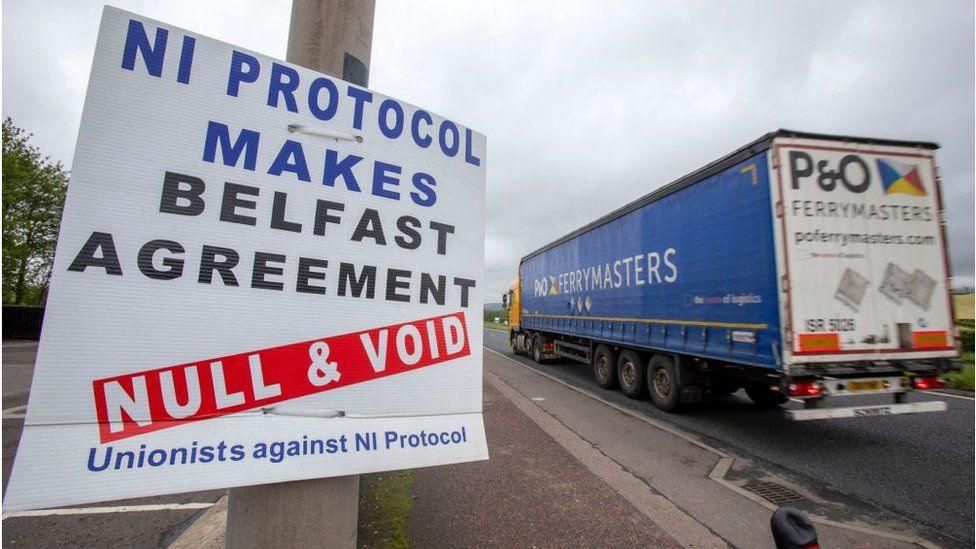Civil servant Neil Gibson takes control of Stormont finances
- Published

A senior civil servant has taken control of Stormont's finances.
Neil Gibson has done so because of the failure to pass a budget before the Democratic Unionist Party (DUP) collapsed the executive in February.
The senior official at the Department of Finance will use emergency powers to release cash to departments until a new budget is in place.
The move means departments can continue to operate but Mr Gibson cannot start funding new policies.
He will not have the power to distribute more than £400m of unallocated funds which Stormont has received from the Treasury since the draft budget was published.
Mr Gibson is a former chief economist at EY and has held senior roles across the private and public sectors and in academia.
He joined the Department of Finance this year.
'Keep the lights on'
Finance Minister Conor Murphy said the development would "keep the lights on and keep the doors open at various departments for another couple of months".
He added that it did not allow any response to the emergency that was "growing daily in terms of people's ability to pay their bills and to put food on the table".
Mr Murphy called for the immediate return of the executive and urged Westminster to help address the "mounting problems".
Up until now departments could operate without a formal budget because of what is known as the vote on account.
It is a legal mechanism which allows the spending of money in the first few months of a financial year before full budget legislation is passed.
It authorises spending equal to 45% of the allocation for the previous year.
Departments are now approaching that 45% limit so need a new legal authorisation to keep spending.

Neil Gibson has acted due to the lack of a budget at Stormont
That authority is Section 59 of the Northern Ireland Act, which ultimately allows Mr Gibson to use money, equivalent to up to 95% of last year's budget, "for such services and purposes" as he directs.
The Department of Finance said for most departments the new authorisation has been set at approximately 60% of departments' provision for the 2021-22 financial year.
That will be reviewed at the end of October.
A spokesperson added: "These contingency arrangements are no substitute for an agreed budget and while departments will have legal cover to continue to spend on delivering services, they will still not have the certainty that an agreed budget would provide."
If the 95% limit is ever reached it would effectively mean in-year cuts of least 5% across the public service.
However, it is improbable that the emergency situation will continue for that length of time.
Westminster budget
If the executive does not return to pass a budget then budget legislation could be approved by the Westminster parliament as has happened during other periods when devolution was not functioning.
The Section 59 powers were first used in March 2017 with the Northern Ireland secretary then taking budget legislation through Parliament in November that year.
There is no functioning assembly or executive at Stormont because of the Democratic Unionist Party's (DUP) protest against the Northern Ireland Protocol.
The protocol, part of the UK government's Brexit deal with the EU, keeps Northern Ireland aligned with the EU single market for goods.
That was designed to continue free trade across the Irish land border but it has been criticised by unionist politicians for adding restrictions to trade between Great Britain and Northern Ireland.
UK plans to legislate against the outworkings of the protocol have been criticised by the EU.
In May's assembly election, Sinn Féin was returned as Stormont's largest party, entitling it to nominate for the position of first minister.
- Published2 February 2024

- Published23 August 2022

- Published10 February 2022
